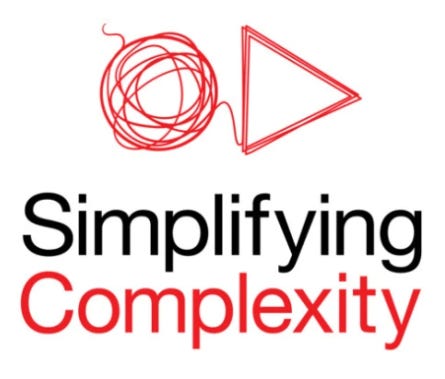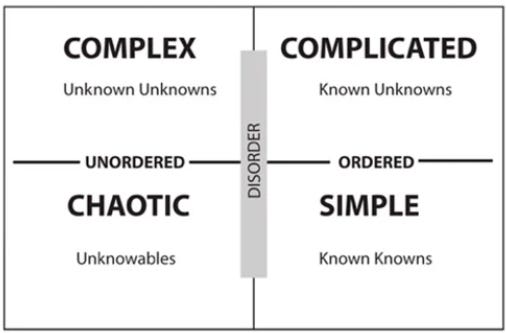Why are Simple Systems so Complex?
Small business owners and professionals often try to use simple pieces to complete a complex puzzle.
Recently, I decided to create a simple system to reach my social media goals.
To ensure success, I prioritized simplicity and avoided unnecessary complexity that could lead to frustration and giving up on the project.
My strategy was simple and straightforward.
Write valuable content … post once a day … track the results.
However, some days I struggled to generate content or find time to post.
I also found myself overwhelmed by a rapid influx of comments to my posts.
Furthermore, I was getting a wide range of conflicting advice from peers regarding which metrics to monitor and how to interpret them.
How did this simple project become so complex and difficult?
Ultimately, I gave up.
I knew I had to face some tough questions and adjust my approach.
What is the best way to design systems that are easy to use and maintain, and don't require constant updates?
How can I create projects that are designed for minimal maintenance and maximum longevity?
Simple Systems are the Goal
We've moved from a 'keep it simple' mindset to one that embraces complexity. It's clear that everything is getting more complicated.
But research shows that the amount of complexity isn't the real issue. It's how we deal with it that makes the difference.
Several factors can cause simple systems to display unexpected complexity:
Unexpected outcomes– Small changes in input can lead to disproportionately large changes in output.
Underlying constraints – A system may appear simple but have hidden dependencies that make it more fragile or harder to predict when outside influences change.
Unintended consequences – Simple rules, when applied at scale, can lead to results far beyond what was expected.
Scaling up – What works in a small setting might behave very differently at scale.
External factors – Simple systems don’t exist in a vacuum.
Often what is simple on a small scale, becomes extremely complex on a large scale.
And the simple truth is, the world is far more complicated now.
Complex Systems are the Outcome
In a truly simple system, the relationship between cause and effect is direct and predictable.
Complex systems consist of many interacting parts.
"Simple" often refers to the individual components.
"Complex" often refers to the behavior of the system as a whole.
Therefore, a system made up of simple parts can still exhibit complex behavior due to the interactions between those parts.
So, what’s the answer?
Simplifying Complexity is the Solution
Complex projects are manageable when approached with appropriate rigor. The danger lies in underestimating their complexity, not in the complexity itself.
The Cynefin framework is a conceptual model designed to help in the decision-making processes.
This framework defines five decision-making contexts: simple, complicated, complex, chaotic, and disorder:
How does this help?
The model improves your ability to perceive and understand workplace dynamics.
Looking back at my previous social media project, what specific steps could I have taken to achieve better results?
I should have begun with a step-by-step approach (the ordered) by knowing the answers to the following questions (the known knowns):
How do I generate my content?
When should I prepare my content?
What time should I post?
When should I follow up with comments?
What methods do I use to monitor the outcomes?
What do I do with the results?
Often, we falter when we mistakenly simplify, creating risk where none existed before.
Over-simplification, not the complexity itself, is the primary source of risk.
Have a great weekend!
- Mike
👀 WHERE TO FIND ME
Facebook: https://www.facebook.com/tipclub
Instagram: https://www.instagram.com/tipclub.inc/
Threads: https://www.threads.net/@tipclub.inc









This was a great reflection on the complexity of seemingly simple systems, Mike! I love how you highlighted that the real danger lies not in complexity itself but in oversimplifying things. It’s so easy to underestimate how factors like scaling up or external influences can introduce unexpected outcomes. I also appreciate the Cynefin framework—it’s a great tool for navigating the complexity in both business and personal projects. Definitely going to keep this in mind as I work on my own systems. Thanks for the insight!